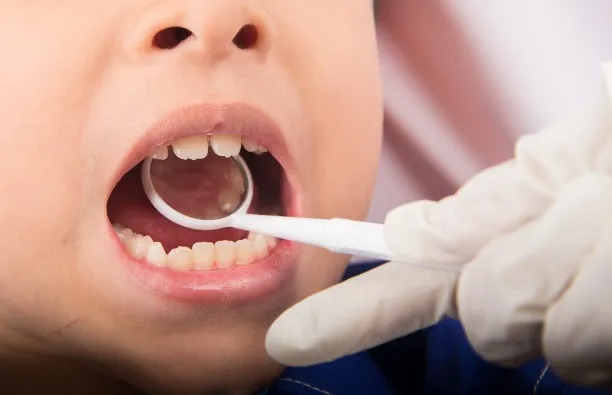Summary: Dental fillings are crucial in restoring teeth affected by decay, cracks, or fractures. To ensure the success of a dental filling and promote long-lasting oral health, several essential precautions must be taken. This article explores four primary areas of focus: the importance of consulting a qualified dentist, following pre- and post-procedure care, maintaining proper oral hygiene practices, and understanding dietary guidelines to support recovery. By adhering to these precautions, patients can enhance the effectiveness of their dental treatments and contribute to ongoing dental health, allowing for a brighter, healthier smile.
1. Importance of Consulting a Qualified Dentist

Consulting a qualified dentist is the cornerstone of successful dental filling procedures. An experienced dentist possesses the necessary skills and knowledge to perform the treatment effectively, minimizing the risk of complications. It鈥檚 crucial to seek recommendations or read reviews to find a dentist with a proven track record in restorative dentistry.
Additionally, a thorough examination by the dentist ensures that any underlying issues are addressed before treatment. This may include X-rays to assess the extent of tooth decay or damage. By identifying and treating these issues beforehand, dentists can provide a more effective filling that promotes long-term dental health.
Moreover, patient education is vital in this process. A good dentist will explain the different filling materials available and their advantages, empowering patients to make informed decisions. Understanding the options helps build trust and comfort, which are essential for a positive dental experience.
2. Following Pre- and Post-Procedure Care
Pre- and post-procedure care significantly affects the outcome of dental fillings. Prior to the filling appointment, patients should follow their dentists recommendations, such as avoiding certain medications or informing the dentist about any allergies. This ensures a smooth procedure and minimizes potential adverse reactions.
After the filling, its essential to adhere to specific post-treatment care instructions provided by the dentist. These may include avoiding hard or sticky foods for a certain period to allow the filling to set properly. Following these guidelines can significantly lower the risk of damaging the filling and promote optimal healing of the tooth.
Additionally, scheduling a follow-up appointment is important to monitor the fillings success. During this visit, the dentist can check for any discomfort or complications, ensuring that the filling integrates well with the tooth structure and addressing any necessary adjustments promptly.
3. Maintaining Proper Oral Hygiene Practices
Maintaining proper oral hygiene is an essential precaution to ensure long-lasting health after dental filling procedures. Brush and floss your teeth at least twice daily to remove plaque and food particles, particularly around the filled area. This helps prevent further decay, which can compromise the filling鈥檚 integrity.
Using fluoride toothpaste is particularly beneficial, as fluoride strengthens tooth enamel and can help in preventing cavities. Moreover, regular dental check-ups are vital for monitoring oral health and catching potential issues early on. Routine cleanings help to eliminate tartar buildup, which can lead to gum disease and other dental problems.
Additionally, consider using an antibacterial mouthwash for extra protection against bacteria. This can help maintain oral hygiene, especially in hard-to-reach areas where traditional brushing may not suffice. Together, these practices contribute significantly to the longevity of dental fillings and overall oral health.
4. Understanding Dietary Guidelines for Recovery
Dietary guidelines play a pivotal role in promoting effective recovery after dental fills. Its recommended to avoid excessively hot or cold foods immediately following the procedure, as temperature sensitivity can occur. Opting for soft foods can also reduce the risk of filling damage during the healing process.
Incorporating calcium-rich foods, such as dairy products and leafy greens, is beneficial for strengthening teeth and bones. Foods rich in vitamins and minerals, like fruits and vegetables, support overall health, allowing for quicker recovery and enhancing oral tissue repair.
Limiting sugary and acidic foods is also crucial, as these can exacerbate tooth decay and cause discomfort around the filling site. A balanced diet helps ensure optimal healing and can contribute to the longevity of dental work, providing a solid foundation for durable oral health.
Summary:
In conclusion, ensuring successful dental fillings and promoting long-lasting oral health centers around key precautions, including consulting qualified dentists, adhering to pre- and post-procedure care, maintaining oral hygiene, and following dietary recommendations. By taking these essential steps, individuals can significantly improve their dental health outcomes and ensure the longevity of their dental restorations.
This article is compiled by Vickong Dental and the content is for reference only.
Vickong Dental
Vickong Dental is a large medical group established in Hong Kong in 2008 by professors from well-known medical universities in Guangdong and Hong Kong, as well as medical doctors from key national '985' universities (including Master's supervisors and senior professors). The chain of branches brings together expert dentists with PhDs and Master's degrees from Hong Kong and Mainland China, committed to providing high-quality dental treatment.
"Vickong Dental Practices the University Motto of 'Healing and Serving Society,' with a Stable Operation for Sixteen Years. It Has Been honored with Hong Kong Enterprise Leaders's Choice,' and is a Global Trusted Implant Center for the Nobel Implant System. Recommended by Hong Kong Metro Broadcast and Guangdong Television, it Serves Customers from Over Thirty Countries and Regions, Gaining the Trust and Favor of Citizens from the Guangdong-Hong Kong-Macau Greater Bay Area and Surrounding Cities.

Thousands of customers' unanimous praise
The most recognized and highly recommended dental service by customers in the Guangdong-Hong Kong-Macau Greater Bay Area
We Ensure You Receive Detailed Care and Attention Here
Hong Kong standards, Shenzhen prices, Your Trusted English-speaking dentists

Vickong Dental Medical-Grade Instrument Disinfection Process
Vickong Dental Medical-Grade Instrument Disinfection Process

Vickong Dental Chain: A Warm and Comfortable Environment for Treatment






Appointment Hours

Q&A
Why choose Vickong Dental?
Vickong Dental practices the university motto 「Medicine to Benefit Society」, with each branch bringing together highly qualified dentists with doctoral and master’s degrees from Hong Kong and the Mainland, and has maintained seventeen years of steady operation。Recipient of 「2024 Hong Kong Enterprise Leaders Brand」, 「2025 Hong Kong Enterprise Leaders Brand」, a Nobel Biocare Global Trusted Implant Center, and a brand recommended by Metro Radio Hong Kong and Guangdong TV。
To date, we have served customers from more than thirty countries and regions,earning exceptionally high word-of-mouth recognition and trusted recommendations from residents across the Guangdong-Hong Kong-Macao Greater Bay Area and surrounding cities
We have eight major branches in Zhuhai、Shenzhen,and a consultation and service assurance center in Hong Kong,so you can book a free consultation at any time for any questions,which is very reassuring.
If I do not accept the quotation after the CT scan, will I be charged??
No! As long as the actual treatment has not started, you will not be charged any fees.
Will there be any additional charges during the treatment process?
No, there won’t be any additional charges. Before treatment begins, we will clearly explain the treatment plan and its corresponding fees. Only after the patient agrees and signs the consent form will we proceed with the dental service.
Can I pay in Hong Kong dollars?
Yes. Vickong Dental accepts payment in Hong Kong dollars. The amount will be converted based on the exchange rate of the day, and the applicable rate will be clearly communicated to you in advance.
Can I reschedule my appointment at any time?
Yes. Please contact us via **WeChat** or **WhatsApp** as early as possible, providing your original appointment time and details, along with your preferred new date and time slot for rescheduling.













